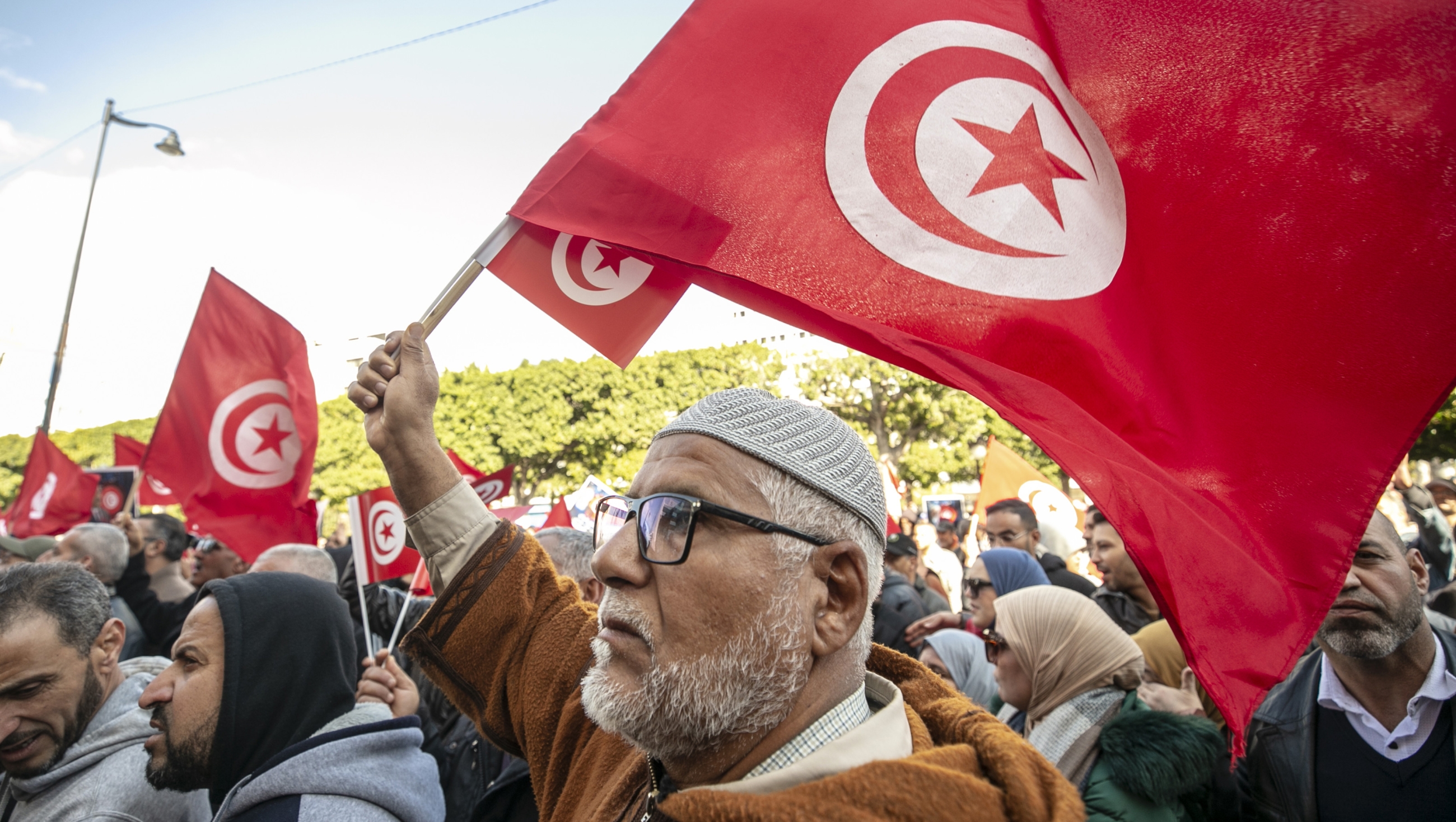Tunisia 'criminalises contact' with western embassies

Tunisians in contact with western diplomats could find themselves subject to persecution, according to leaked documents targeting critics of President Kais Saied.
On Friday, French newspaper Le Monde reported that court documents regarding critics of Saeid that have been arrested in recent weeks suggest communication with western embassies is being used to drive the prosecution's case.
Defendants were asked whether they have been to embassies, arranged meetings with diplomats, and who had authorised them to meet with representatives of foreign countries without official status.
To substantiate their claims, Tunisian investigators used evidence of conversations with foreign officials, business cards, and lists of telephone contacts as evidence that they were part of a conspiracy against the state, Le Monde reported.
More than a dozen opposition figures have been arrested in recent weeks, including two judges, a senior union official, politicians, activists, businessmen, and the head of a leading independent radio station.
Stay informed with MEE's newsletters
Sign up to get the latest alerts, insights and analysis, starting with Turkey Unpacked
'The primary role for any US embassy, for any diplomat anywhere in the world, is to meet with a wide array of individuals'
- Ned Price, US State Department
The US State Department said it is "deeply concerned" by the string of arrests, while the UN Human Rights Office has called for their immediate release.
The arrests of prominent personalities have been portrayed by Saied as an attempt to dismantle a grand conspiracy “undermining the external security of the State".
Earlier this month, Tunisia warned western embassies that they should respect "the Vienna Convention on Diplomatic Relations clearly stipulating that diplomats shall respect the laws of the country to which they are accredited and not interfere in its internal affairs".
But State Department spokesman Ned Price has defended the US embassy in Tunisia.
"We are alarmed by reports of criminal charges against individuals in Tunisia resulting from meetings or conversations with US embassy staff on the ground," Price told reporters earlier this month.
"The primary role for any US embassy, for any diplomat anywhere in the world, is to meet with a wide array of individuals to inform our understanding of the different views and perspectives in that country."
Escalating crackdown
Saied unilaterally suspended parliament and dissolved the government in July 2021, a move he marketed as a step towards "true democracy", involving what he describes as a clean break with the political class, institutions, and "corrupt elites".
He then gathered vast, unchecked powers, which were later enshrined in a tailor-made constitution that Saied was using to pave the way towards a "dictatorial regime", according to opposition figures.
These moves have also engulfed the country in political and economic crises.
Saied has increasingly targeted critics, as well as embraced far-right "great replacement" anti-migration rhetoric that has encouraged racist attacks on sub-Saharan Africans and Black Tunisians.
CIVICUS Monitor, which analyses the situation of civil society and civic freedoms across 197 countries, downgraded Tunisia's rating from "obstructed" to “repressed" in its latest March report.
The power grab is increasingly impacting many institutions and areas of civil society: from the judiciary to anti-racism and trade unionism. The media is not being spared.
There has been a marked increase in journalists being arrested or intimidated since Saeid's power grab, according to a report last year.
It found that at least nine journalists had been harassed and assaulted by protesters or security forces during demonstrations in the days after the July 2021 power grab began.
">Middle East Eye delivers independent and unrivalled coverage and analysis of the Middle East, North Africa and beyond. To learn more about republishing this content and the associated fees, please fill out this form. More about MEE can be found here.





